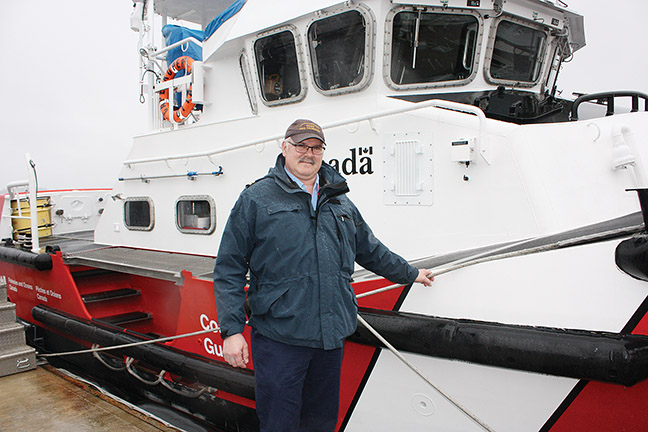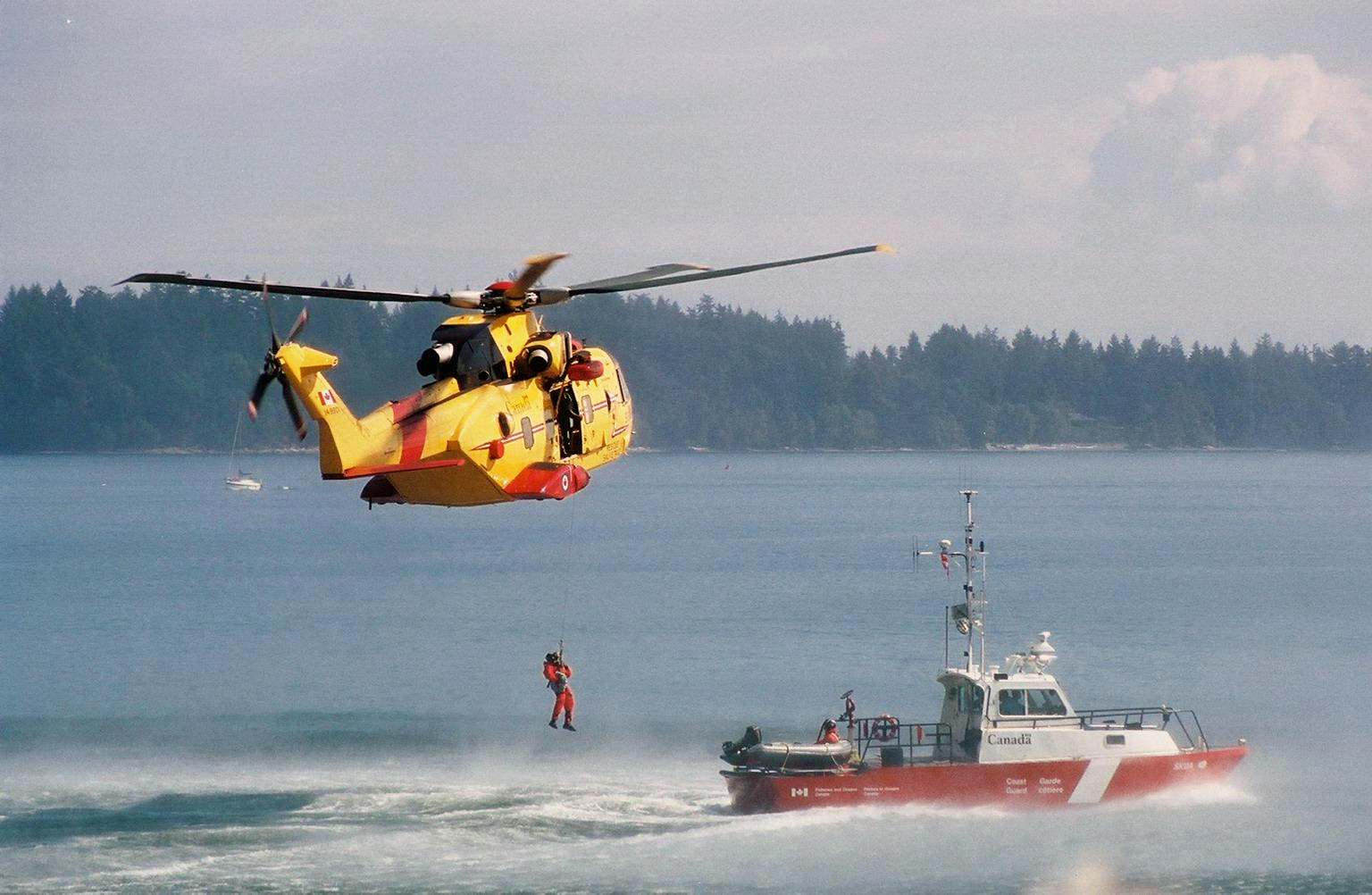The vessel was sinking. The 38-foot Bayliner was taking on water near Discovery Harbour and listing to one side. By the time the four-person Coast Guard crew arrived on scene, the situation was looking dire.
“They were sinking,” says Ron Boucher, commanding officer. “We were really close to losing that boat, it was really close.”Applying two pumps to the boat wasn’t enough, even in tandem with a single pump from a barge towing the sinking boat. It took four pumps total – including three of the Coast Guard’s gas-powered devices – and the efforts of the crew to plug some of the vents, just to catch up to the rising water.
But finally, success. The Coast Guard crew was able to get the two people onboard the sinking vessel – and their pets – to safety and salvage their craft.
“We saved their boat, prevented a lot of pollution, and saved a cat and a dog,” says Kyle Zacharuk, one of two leading seamen, also known as a rescue specialist or medic, on board.
“That was a real feel-good story,” agrees Boucher. It’s just one of the reasons Boucher and his crew enjoy what they do so much.
“I like helping people – it just feels good,” he says. “Another part of it for me is the job is always changing, the calls are always different.”
 While the Coast Guard’s main role is to perform marine search and rescue – to help mariners when they get into trouble – the Coast Guard is also the lead federal agency for oil spill response and other pollution incidents in Canadian waters.
While the Coast Guard’s main role is to perform marine search and rescue – to help mariners when they get into trouble – the Coast Guard is also the lead federal agency for oil spill response and other pollution incidents in Canadian waters.
The Coast Guard also helps out with medical evacuations. In fact, the most common call outs last year for the Campbell River Coast Guard station were medivacs.
“We get a lot of medivacs here from the islands, mainly Quadra and Cortes, but the other outlying islands as well,” Boucher says.
The Coast Guard is called when BC Ferries is unable to assemble a crew to transport a patient to Campbell River for medical care.
The Coast Guard’s cutter, the Cape Palmerston, is often deployed in those instances and the Coast Guard is equipped with a spine board and a specialized stretcher that fits the boat.
Campbell River’s Coast Guard station received 169 distress calls last year, making Campbell River the busiest station on the coast, and Boucher says that can be attributed to the amount of medivacs.
“They’re so populated, all of the islands around here and there are a lot of retirees,” he says.
When the crew isn’t performing medical evacuations or search and rescue, they’re working with other agencies. “We’ll work with the fire department if a boat’s on fire and we’ve worked with the local Search and Rescue doing medivacs, we’ve had crews out doing customs work,” Boucher says. “A foreign vessel had broken down once and we were the platform.”
Boucher says Coast Guard will also do humanitarian work and come off the water. In one instance, Coast Guard crews provided medical assistance to local paramedics who were responding to a patient in the community. The Coast Guard also provides support aids to navigation.
“There are navigation lights up and down the coast and the lights do go out sometimes,” Boucher says. “We’ll be asked to go out and repair them.”
And when they’re not called away on a job, the crews are out doing training exercises.
Boucher says local crews are typically out on the water every second day, in order to ensure the boat is always ready to go and it’s second nature to deploy.
“We’ve got to be able to get the boat out without having to even think about it,” he says.
The Coast Guard has a 30-minute standby period that it must abide by. That means that crews, no matter if they’re in the office or at home, have 30 minutes to respond after the rescue operations centre in Victoria sends out the page.
Crews are always on standby 24/7 for the duration of their two week shift. In Campbell River, there are two four-crew teams that work a two-week-n, two-week-off rotation.
The local station has a wealth of experience. Boucher started with the Coast Guard in Prince Rupert in 1990 while one of his partners, Ian Wallace, has been with the Coast Guard since 1979 when he started out at the station in Bamfield, on the West Coast of the Island.
“I went to school by boat and it just hasn’t stopped,” Wallace says.
